Ongoing projects
Project members: Prof. Dr. Ghassan Karame, Pascal Zimmer
Project period: 06/2023 – 05/2027
Project members: Prof. Dr. Ghassan Karame, Jannik Albrecht, Malcom Mohamed, Anna Piscitelli
Project period: 06/2023 – 05/2026
Project members: Prof. Dr. Ghassan Karame, Annika Wilde
